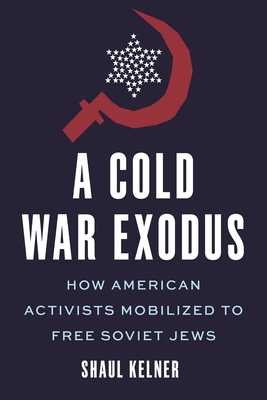
Kelner, Shaul
product information
description
tactics that helped free Soviet Jews and reshaped the Jewish American experience from the Johnson era through the Reagan-Bush years What do these things have in common? Ingrid Bergman, Passover matzoh, Banana Republic(R), the fitness craze, the Philadelphia Flyers, B-grade spy movies, and ten thousand Bar and Bat Mitzvah sermons? Nothing, except that social movement activists enlisted them all into the most effective human rights campaign of the Cold War. The plight of Jews in the USSR was marked by systemic antisemitism, a problem largely ignored by Western policymakers trying to improve relations with the Soviets. In the face of governmental apathy, activists in the United States hatched a bold plan: unite Jewish Americans to demand that Washington exert pressure on Moscow for change. A Cold War Exodus delves into the gripping narrative of how these men and women, through ingenuity and determination, devised mass mobilization tactics during a three-decade-long campaign to liberate Soviet Jews--an endeavor that would ultimately lead to one of the most significant mass emigrations in Jewish history. Drawing from a wealth of archival sources including the travelogues of thousands of American tourists who smuggled aid to Russian Jews, Shaul Kelner offers a compelling tale of activism and its profound impact, revealing how a seemingly disparate array of elements could be woven together to forge a movement and achieve the seemingly impossible. It is a testament to the power of unity, creativity, and the unwavering dedication of those who believe in the cause of human rights.
member goods
No member items were found under this heading.
listens & views

WARWICK RECORDS: DOO WOP RHYTHM ...
by WARWICK RECORDS: DOO WOP RHYTHM AND BLUES 1 / VAR
COMPACT DISCout of stock
$13.25

SYMPHONIES 1-4 / HAYDN VARIATIONS
by BRAHMS / FISCHER / VARIOUS ORCH / FURTWANGLER
COMPACT DISCout of stock
$44.75
Return Policy
All sales are final
Shipping
No special shipping considerations available.
Shipping fees determined at checkout.





